






The Prairie Recovery
Verified Center
This provider's information has been quality-checked by Recovery.com's Research Team for accuracy and completeness, including center verification through appropriate third-party organizations.
Treatment Focus
This center treats substance use disorders and co-occurring mental health conditions. Your treatment plan addresses each condition at once with personalized, compassionate care for comprehensive healing.
Primary Level of Care
Offering intensive care with 24/7 monitoring, residential treatment is typically 30 days and can cover multiple levels of care. Length can range from 14 to 90 days typically.
Treatment Focus
This center treats substance use disorders and co-occurring mental health conditions. Your treatment plan addresses each condition at once with personalized, compassionate care for comprehensive healing.
Primary Level of Care
Offering intensive care with 24/7 monitoring, residential treatment is typically 30 days and can cover multiple levels of care. Length can range from 14 to 90 days typically.
Provider's Policy
The Prairie Recovery Center is contracted with BlueCross BlueShield, Magellan, Cigna, Aetna and Triwest, and accepts out of network policies with other major insurances. Their insurance experts provide a benefit verification so you have a clear picture of what the costs of treatment would be at the facility. They do not accept Medicare/Medicaid.
The Prairie Recovery
The Prairie Recovery
About The Prairie Recovery
The Prairie Recovery Center is a place where healing begins and hope is renewed for clients struggling with substance use and co-occurring mental health disorders. The team at The Prairie helps clients find long-term freedom from addiction and corresponding mental health concerns by guiding clients through the detox process and transitioning them into a residential level of care. The medical team at The Prairie expertly helps navigate this process, understanding the complexity and urgency needed in this crucial stage of recovery. After detox, clients move on to the residential program which can last 30-90 days. This level of care provides a distraction and trigger-free environment for clients to receive intensive therapy and plan for life after rehab. Specializing in dual diagnoses, The Prairie understands the vicious cycle of seeking relief from a mental health disorder while also struggling with addiction. Because the two disorders feed into each other, the team treats the whole person with a mind-body approach.
Collaborate to Create a Custom Treatment Plan
The Prairie Recovery Center takes a nuanced approach to treating addiction, recognizing it as a complex disease that requires a multi-faceted strategy addressing physical, emotional, and mental aspects of recovery. They offer a range of evidence-based therapies, including proven-effective therapeutic staples like cognitive behavioral therapy (CBT), dialectical behavior therapy (DBT), eye movement desensitization and reprocessing (EMDR), and motivational interviewing, alongside mind-body-focused therapies like mindfulness practices, yoga, equine therapy, and art therapy. With multiple recovery program options—including the 12-Step Program, SMART Recovery, and Refuge Recovery—clients can choose the path that best suits their needs. The center's team of masters and doctoral-level clinicians, psychiatrists, medical doctors, and nurses are not just experts in their fields but also compassionate allies in each client's journey to recovery; many being personally familiar with addiction and its effects.
Reconnect with Nature and Self
The Prairie Recovery Center caters to a diverse clientele, providing specialized dual diagnosis care for adults seeking a fresh start. Many working professionals find The Prairie Recovery Center a good fit given that they allow cell phone and laptop usage. Their blend of evidence-based therapies and innovative recreational, outdoor therapies help encourage whole-person healing. Clients can find solace in equine therapy, where gentle interactions with horses foster self-awareness and emotional growth. Many clients rediscover inner peace through meditation and mindfulness practices, while art therapy unlocks creativity as a tool for expression and healing. At The Prairie Recovery Center, clients are not just treated, they are empowered to rewrite their story by choosing their own path to recovery.
Find Joy in the Process
At The Prairie Recovery Center, clients discover a serene prairie landscape, where recovery meets luxury. Every client enjoys the comfort of a full-sized bed, with the option to request a private room for added personal space. The thoughtfully designed facility offers more than just accommodation—it's a holistic healing environment where clients can unwind by the fishing pond, take a refreshing swim in the sparkling pool, or challenge themselves on pickleball and basketball courts. Between therapy sessions, clients can expect moments of joy from the center's resident cats, providing companionship. The Prairie Recovery Center’s environment feels like a rejuvenating retreat, offering clients the comfort and inspiration needed to awaken their best selves.

Highlights from the Center
Highlights
These highlights are provided by and paid for by the center.
Therapeutic Location
Wellness Emphasis
Tech Friendly
Center Overview
Treatment Focus
This center treats substance use disorders and co-occurring mental health conditions. Your treatment plan addresses each condition at once with personalized, compassionate care for comprehensive healing.
Joint Commission Accredited
The Joint Commission accreditation is a voluntary, objective process that evaluates and accredits healthcare organizations (like treatment centers) based on performance standards designed to improve quality and safety for patients. To be accredited means the treatment center has been found to meet the Commission's standards for quality and safety in patient care.

Insurance Accepted
Cash Pay Rates
Estimated Cash Pay Rate
Center pricing can vary based on program and length of stay. Contact the center for more information. Recovery.com strives for price transparency so you can make an informed decision.
Luxury rehab centers offer a unique blend of luxurious amenities and high-quality treatment. From private suites to gourmet dining, personal trainers to spa treatments, these facilities provide a high level of comfort and discretion.

Meet Your Care Team
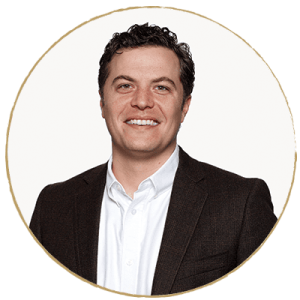
Robert Hilliker
Chief Clinical Officer
PhD, LCSW-S, LCDC
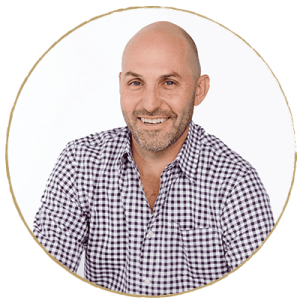
Will Davis
Chief Business Officer

Gregg Workman
Medical Director
MD
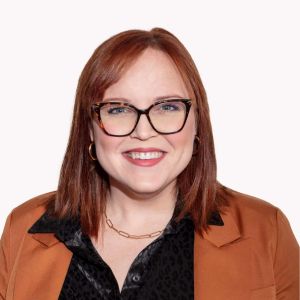
Jill Weishuhn
Director of Nursing
RN

Lisa Church
Nurse Practitioner
APRN-CNP

Mona Adamaszek
Nurse Practitioner
APRN-CNP, PMHNP-BC
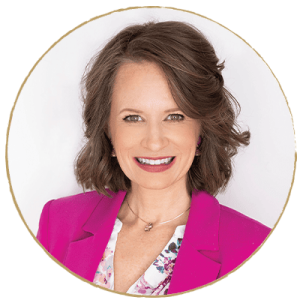
Alana Smith
Family Therapist
LCSW, LCDC

Ceci Hudson Torn
Lead Therapist
DSW, LPC-A
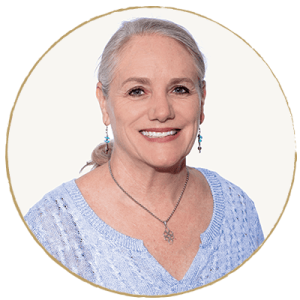
Shawn Slobe
Staff Therapist
LMSW
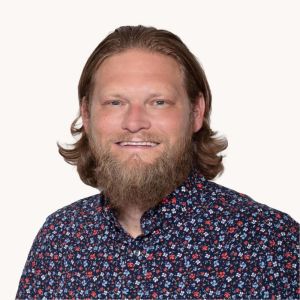
Tyler Ward
Staff Therapist
LCDC
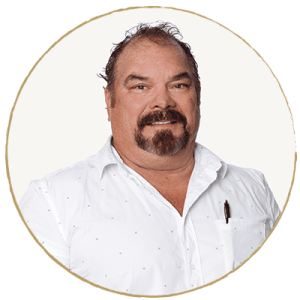
Danny Riebeling
Facilities Director




Levels of Care






Your Care Options
Specializations
Alcohol
Using alcohol as a coping mechanism, or drinking excessively throughout the week, signals an alcohol use disorder.
Co-Occurring Disorders
A person with multiple mental health diagnoses, such as addiction and depression, has co-occurring disorders also called dual diagnosis.
Cocaine
Cocaine is a stimulant with euphoric effects. Agitation, muscle ticks, psychosis, and heart issues are common symptoms of cocaine abuse.
Codependency
Codependency is a pattern of emotional dependence and controlling behavior. It's most common among people with addicted loved ones.
Drug Addiction
Drug addiction is the excessive and repetitive use of substances, despite harmful consequences to a person's life, health, and relationships.
Heroin
Heroin is a highly addictive and illegal opioid. It can cause insomnia, collapsed veins, heart issues, and additional mental health issues.
Opioids
Opioids produce pain-relief and euphoria, which can lead to addiction. This class of drugs includes prescribed medication and the illegal drug heroin.
Prescription Drugs
It's possible to abuse any drug, even prescribed ones. If you crave a medication, or regularly take it more than directed, you may have an addiction.
Who We Treat
Executives
Executive treatment programs typically directly support the needs of people who manage businesses and may provide flexible schedules and office space to allow work during treatment.
Young Adults
Emerging adults ages 18-25 receive treatment catered to the unique challenges of early adulthood, like college, risky behaviors, and vocational struggles.
LGBTQ+
Addiction and mental illnesses in the LGBTQ+ community must be treated with an affirming, safe, and relevant approach, which many centers provide.
Men and Women
Men and women attend treatment for addiction in a co-ed setting, going to therapy groups together to share experiences, struggles, and successes.
Professionals
Busy, high-ranking professionals get the personalized treatment they need with greater accommodations for work, privacy, and outside communication.
Veterans
Patients who completed active military duty receive specialized treatment focused on trauma, grief, loss, and finding a new work-life balance.
Approaches
Evidence-Based
A combination of scientifically rooted therapies and treatments make up evidence-based care, defined by their measured and proven results.
Experiential
Expressive tools and therapies help patients process past situations, learn more about themselves, and find healing through action.
Holistic
A non-medicinal, wellness-focused approach that aims to align the mind, body, and spirit for deep and lasting healing.
Therapies
1-on-1 Counseling
Patient and therapist meet 1-on-1 to work through difficult emotions and behavioral challenges in a personal, private setting.
Meditation & Mindfulness
A practiced state of mind that brings patients to the present. It allows them to become fully aware of themselves, their feelings, and the present moment.
Trauma-Specific Therapy
This form of talk therapy addresses any childhood trauma at the root of a patient's current diagnosis.
Experiential Therapy
With this approach, patients heal by doing. Therapists help patients process difficult emotions to speak, using guided activities like art or dance.
Eye Movement Therapy (EMDR)
Lateral, guided eye movements help reduce the emotional reactions of retelling and reprocessing trauma, allowing intense feelings to dissipate.
Family Therapy
Family therapy addresses group dynamics within a family system, with a focus on improving communication and interrupting unhealthy relationship patterns.
Nutrition Counseling
Nutritious food helps patients heal from within, setting them up for mental and bodily wellness as they learn about healthy eating.
Psychoeducation
This method combines treatment with education, teaching patients about different paths toward recovery. This empowers them to make more effective decisions.
Conditions We Treat
Grief and Loss
Grief is a natural reaction to loss, but severe grief can interfere with your ability to function. You can get treatment for this condition.
Anger
Although anger itself isn't a disorder, it can get out of hand. If this feeling interferes with your relationships and daily functioning, treatment can help.
Anxiety
Anxiety is a common mental health condition that can include excessive worry, panic attacks, physical tension, and increased blood pressure.
Bipolar
This mental health condition is characterized by extreme mood swings between depression, mania, and remission.
Codependency
Codependency is a pattern of emotional dependence and controlling behavior. It's most common among people with addicted loved ones.
Depression
Symptoms of depression may include fatigue, a sense of numbness, and loss of interest in activities. This condition can range from mild to severe.
Post Traumatic Stress Disorder
PTSD is a long-term mental health issue caused by a disturbing event or events. Symptoms include anxiety, dissociation, flashbacks, and intrusive thoughts.
Stress
Stress is a natural reaction to challenges, and it can even help you adapt. However, chronic stress can cause physical and mental health issues.
Substances We Treat
Alcohol
Using alcohol as a coping mechanism, or drinking excessively throughout the week, signals an alcohol use disorder.
Benzodiazepines
Benzodiazepines are prescribed to treat anxiety and sleep issues. They are highly habit forming, and their abuse can cause mood changes and poor judgement.
Chronic Relapse
Consistent relapse occurs repeatedly, after partial recovery from addiction. This condition requires long-term treatment.
Co-Occurring Disorders
A person with multiple mental health diagnoses, such as addiction and depression, has co-occurring disorders also called dual diagnosis.
Cocaine
Cocaine is a stimulant with euphoric effects. Agitation, muscle ticks, psychosis, and heart issues are common symptoms of cocaine abuse.
Drug Addiction
Drug addiction is the excessive and repetitive use of substances, despite harmful consequences to a person's life, health, and relationships.
Ecstasy
Ecstasy is a stimulant that causes intense euphoria and heightened awareness. Abuse of this drug can trigger depression, insomnia, and memory problems.
Heroin
Heroin is a highly addictive and illegal opioid. It can cause insomnia, collapsed veins, heart issues, and additional mental health issues.
Languages
Aftercare
Care Designed for Your Needs
Personal Amenities
Amenities
Special Considerations
Center Pets
Addiction and mental health facilities with pets allow patients to interact with friendly dogs, cats, horses, and in some cases, even dolphins.
Flexible technology policies
Centers with flexible technology policies allow professionals to stay in touch with work and give patients a greater sense of connection and normalcy.
Healthy Meals are provided
Great food meets great treatment, with providers serving healthy meals to restore nutrition, wellbeing, and health.
Activities
Yoga
Yoga is both a physical and spiritual practice. It includes a flow of movement, breathing techniques, and meditation.






